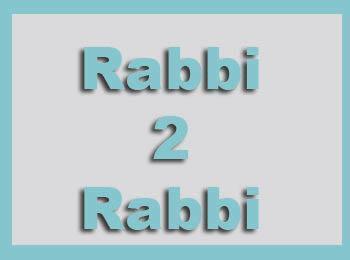The daily shofar blasts in Elul awaken us to deeper contemplation as we get ready to walk into synagogue on the first night of Rosh Hashanah
Rabbi Adam Cutler
Beth Tzedec Congregation, Toronto
Rabbi Noah Cheses
Shaarei Shomayim Congregation, Toronto
Rabbi Cheses: It still feels like the middle of the summer, but as spiritual leaders, we are thinking ahead to the Days of Awe. How do you prepare yourself for getting into high gear? How are you getting your community into the mood?
I find that I need to work on myself in order to get others excited about the potential for personal change. Every summer, I read a number of books that have been collecting dust on my “books to read” shelf and try to use them as the intellectual and emotional engine for my own personal preparations.
Two summers ago I read Without Guilt and Justice: From Decidophobia to Autonomy, by Walter Kaufman, which unpacks the dread of making decisions that will force us to give up on imagined selves. This summer, I read David Brooks’ The Road to Character, about the need to shift from building resumé virtues to eulogy virtues. After reading Brooks’ book, I made a list of three virtues that I am lacking in and have started to work on wrestling with them in order to get better.
Rabbi Cutler: With the sound of the shofar blowing on the first of Elul, the transition from summer to High Holiday season formally begins. I find the daily shofar blasts fulfil their mandate of awakening me to deeper contemplation.
You correctly differentiate between practices pertaining to self and those aimed at community. Sometimes those practices have overlapping goals, other times they do not. I try to focus my summer reading on books, including fiction (which I read less frequently during the year), that do not pertain directly to my work. I find the broadening of perspective provides invaluable insights about my own experiences and the lives of others.
I also make a point of doing some Jewish learning lishmah – for its own sake. Such learning helps remind me what I treasure about our religion and why I chose to enter the rabbinate. For my community, I often spend as much time thinking about what types of messages they want or need to hear as I do on researching and writing.
Rabbi Cheses: During the month of Elul, I try to look at myself from the balcony. I do this by setting aside specific times to read through my journal entries from the previous year. This process is often unsettling and frustrating. It is frightening to see where I have drifted without even noticing. It is disheartening to see the same sorts of undesirable emotional patterns repeat themselves again and again. I find that this self-confrontation softens my shell and enables me to be more receptive to the energy of the season.
I also try to listen to different music during Elul. This time of year, my playlists shift to melodies and tunes that transport me to contemplative spaces. The lyrics of the songs – often from Slichot or sections of the machzor – awaken my spiritual capital and help me prepare for walking into synagogue on the first night of Rosh Hashanah.
Rabbi Cutler: Often, the person most needing the message carried in a rabbi’s sermon is the rabbi him or herself. Therefore, one practice I intend to inaugurate this year is reading through previous High Holidays sermons and much of what I have taught over the past year. As rabbis, we so quickly jump from one dvar Torah to the next. We often lack the time to properly reflect on the themes we choose.
Each year, I reread Reuven Hammer’s Entering the High Holy Days: A Complete Guide to the History, Prayers, and Themes, as well as Hayyim Kieval’s The High Holy Days: A Commentary on the Prayerbook of Rosh Hashanah and Yom Kippur. Reciting the High Holiday liturgy is like encountering an old friend. It’s been a year since we last embraced.
But unlike connecting with an old friend, I don’t want to spend all of our time together catching up. I want my time with the astounding High Holiday liturgy to propel me to something greater. For that, I need to be prepared. I need to re-familiarize myself with the prayers before they leave my mouth, in order for them to perform their task of inspiration and dialogue of God.
